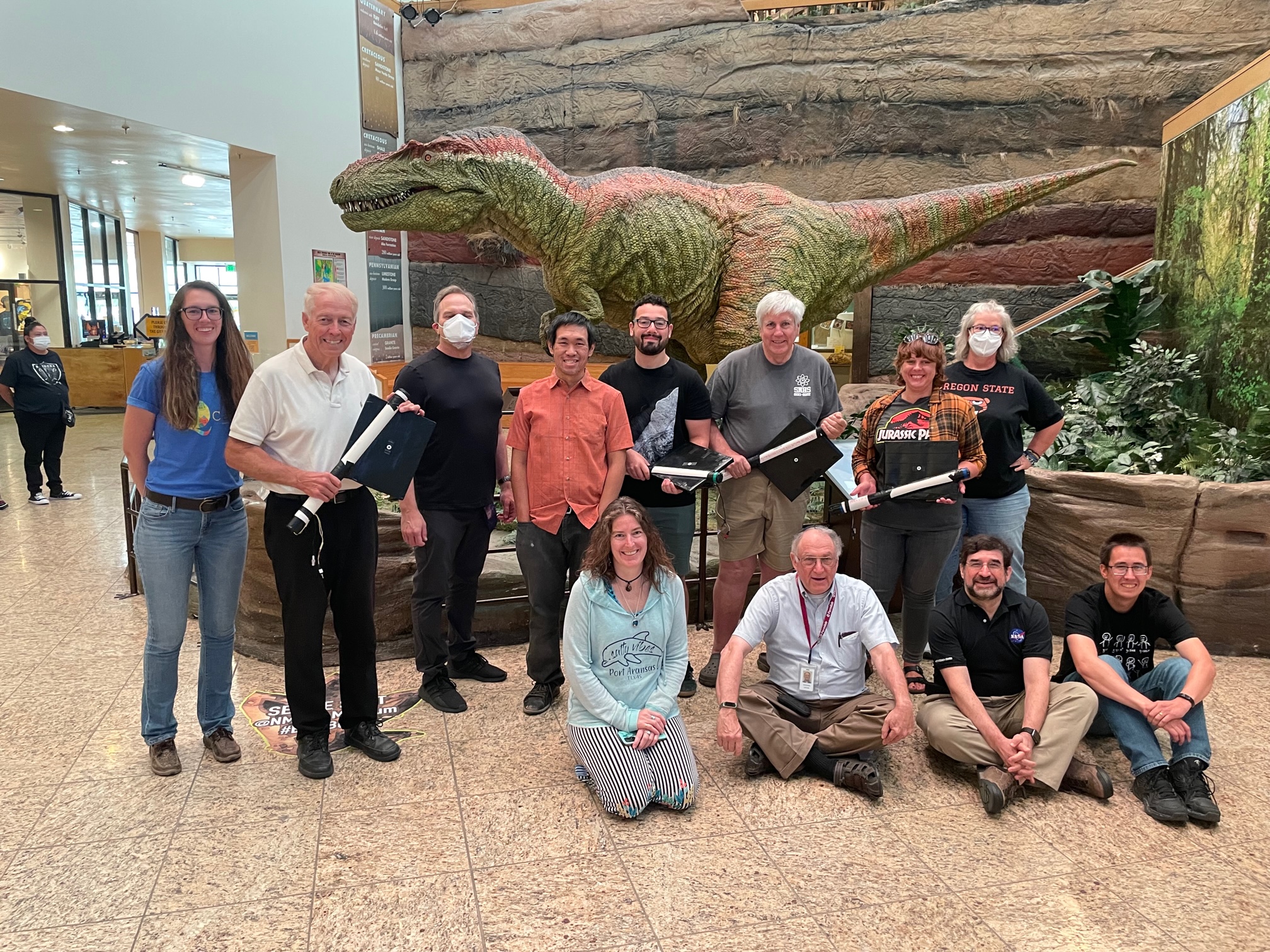Friday Flyer - March 10, 2023

Spotlight on the University of New Mexico QuarkNet Center
The University of New Mexico QuarkNet Center is one of our newest centers, bringing in teachers from around the Albuquerque area. Staff worked with Albuquerque teacher Turtle Haste to organize the 2022 workshop that was held over four days in July at the New Mexico Museum of Natural History & Science. The workshop focused on ATLAS data, cosmic ray studies (with help from cosmic fellow Nate Unterman), and included opportunities for teachers to explore the museum, attend a planetarium show, and learn about the museum's educational resources.


News from QuarkNet Central
International Masterclasses: Masterclasses are upon us and have reached the half-way point. Don't forget that QuarkNet teachers can go to the Masterclass Stipends 2023 form receive a stipend for out-of-class hours spent with students on IMC 2023.
QuarkNet Camps 2023: Data Camp will be held at Fermilab on July 9-14, and Coding Camp 2 will be held at Fermilab on July 23-28. Held virtually, Coding Camp 1 will likely take place June 26-30. Stay tuned to future Friday Flyers and the QuarkNet teacher listserv for nomination (Data Camp) and application (Coding Camps) instructions if you are interested in participating in any of these opportunities.
Kétévi Assamagan is a physicist at Brookhaven National Laboratory, one of our mentors at the BNL/Stony Brook University QuarkNet center, and an all-around great guy! Symmetry recently published a nice article about Kétévi including his path to become a physicist, and his work that positively impacts so many physics students today.
Physicists worldwide recently celebrated the life and accomplishments of Professor Meenakshi Narain from Brown University. Meenakshi, who passed away on January 1 of this year, was considered by many to be a "force of nature" as a renowned physicist and inspirational leader. "Her impact on the physics community has left an indelible mark – on the science that she was passionate about and the people that she cared for and inspired over the years" (Fermilab News at Work).

Physics Experiment Roundup
In news from the LHC: The accelerator complex at CERN awakens from hibernation, and LHCb begins using a new and improved system to process collision data. In news from Fermilab: The completion of the first-of-its-kind prototype of a special superconducting accelerator cryomodule.
The Standard Model Standard passes yet another test, confirming a very precise prediction about the electron magnetic moment. From the BBC: A video about an underground lab searching for dark matter.

Resources
Let's start with a couple of videos from Fermilab: One from Don Lincoln on the Twin Paradox of special relativity, and one from Joe Lykken on wormholes in the laboratory.
Next, we turn to Symmetry for "What the Higgs Boson Tells Us About the Universe" and "Do Hidden Influences Give Neutrinos Their Tiny Mass." Speaking of neutrinos, here's an article from Big Think on the question, "If Neutrinos Have Mass, Where Are All The Slow Ones?" (H/T Zach Armstrong).
The March 2023 issue of The Physics Teacher is out featuring several articles, including this one that uses conservation of energy to calculate resting breathing rate of animals, this one on using a simulation and game to teacher about electric fields, and "Pulling a Spool."
The National MagLab is seeking participants for this summer's paid Research Experiences for Teachers (RET) program. Learn more about the program from their website, including how to apply. Applications are due April 8. Quantum Science Summer Camp will take place this summer at Casper College in Wyoming on July 17-28. More information, including how to apply, can be found here.

Just for Fun
After a busy day learning about particle accelerators, detectors, and analyzing neutrino interaction data, students who participated in the 2023 MINERvA Masterclass at CSU in Fort Collins on March 4 got a chance get outside and play with a different type of "particle accelerator." These Squishmallow Cannons use air to accelerate the soft and cuddly stuffed toys, and on this day were used in a competition to see which participating school could get their Squishmallow across the field first. Congratulations to QuarkNet teacher Zach Armstrong and his students from Greeley West High School for the big win in the Squishmallow race! CSU QuarkNet lead teachers Cherie Bornhorst and Adam Pearlstein both work with CSU's Little Shop of Physics, the folks responsible for physics fun involving the Squishmallow Cannon, and so much more!
QuarkNet Staff
Mark Adams: adams@fnal.gov
Ken Cecire: kcecire@nd.edu
Spencer Pasero: spasero@fnal.gov
Shane Wood: swood5@nd.edu
